What is Wokeness?
Émilie
The affirmation or negation of “wokeness” constitutes a central dividing line of our historical conjuncture. Yet one of the peculiar features of our moment in time is that its most definitive political conflict centers upon a concept that no party has ever bothered to properly define. Such an effort would be fraught with danger, but also possibility: to clarify the meaning of wokeness would also entitle us to transform the contours of the fight surrounding it. Such is precisely the wager of the present text, which is nothing less than a treatise on the philosophical underpinnings of Western capitalism through the lens of wokeness.
From Plato to Kant and De Sade, the Western effort to “purify” practical reason inadvertently laid the foundations of that identitarian logic of the commodity upon which capitalist civilization rests, and which has today spread its omnicidal logic of extinction to the far ends of the Earth. The present study aims to retrieve from the wreckage of transcendental reason the anonymous field of interiority that instrumental reason has consistently sought to purge or anesthetize in principle, yet without which it cannot function in fact. This irreducible remainder, which tethers intellectual life to an impersonal field of sensibility, is “sensitive reason.”
Although it announced itself already at the dawn of Western philosophy in the form of the demonic intellectual anxiety that speaks within the figure of Socrates, bidding him to retreat from politics and examine Athenian life, sensitive reason is today returning under a new guise. Such is the deeper, epochal signification of wokeness, which promises a resensitization of reason, its unchaining from the logic of identity with its “annihilationist program.” Whereas anxiety is often figured as a symptom of subjectivity’s constrained absence from the world, an absence that condemned us to a desperate performance of increasingly artificial identity roles, in the present text anxiety plays a more salvific and emancipatory role: as “intellectual sensation” or wokeness, it allows us to interrupt the genocidal dialectic of Enlightenment so as to recover that anonymous, anti-subjective delight in the world in which communism must find its authentic point of departure.
Other languages: Français
ἐφ’ ἡμῖν τὸ ἀγαθοῖς εἶναι, καὶ το ἀδέσποτον τὴν ἀρετήν. We have the freedom to be good, and virtue is to have no master. —Plotinus
All who have written about wokeness, for or against it, have until now said nothing. The right opposes wokeness, the left opposes the anti-woke right: and neither of them knows what wokeness is. It is high time that wokeness should openly, in the face of the whole world, make itself manifest by answering the question: what is wokeness?
But how does one go about answering that question? Must wokeness be thought dialectically? In spite of all the reactionaries opposing wokeness and their leftist opponents responding to those attacks, for all this negation of the negation we have yet to arrive at any concrete knowledge of wokeness. Has the dialectic abandoned us? Time and time again, wokeness has been accused of being undialectical; but what if it were not so, what if it were the dialectic itself that fell short of wokeness? What if the history of all previous human societies, and not only of all previous human societies, but the history of the universe also, were the history of wokeness?
It has been the norm thus far to define wokeness through genealogy, by situating wokeness in the struggles of Black Americans against white supremacy, as the awareness of injustice, of racial injustice. But the genealogical account goes a bit further: wokeness would specifically arise from the situation of Black women, as Black women found themselves alienated from the struggles of radical feminism, since radical feminism, by positioning patriarchy anterior to colonialism and racism, resulted in an impossible position for Black women, since it presupposed a solidarity between Black and bourgeois white women who had a vested interest in securing a better position within the structure of white supremacy. According to the genealogical account, it is precisely from this contradiction between radical feminism and the struggle against white supremacy that wokeness was born.
It was the position of Black women, as non-subjects, that blasted apart the dialectical logic according to which the Substance should be in the position of the subject. The struggle of Black women was historical, as the movement of Enlightenment, and yet it was not undertaken by a subject, since Black women were excluded from the logical space where capital could produce a subject. Therefore, the space of struggle for Black women was not contradictory as is often supposed, but rather, it was non-contradictory: they could only struggle according to a non-dialectical logic. When Marquis Bey describes the ontological configuration of Black bodies as paraontology, and especially that of Black female, Black queer, and Black trans bodies, this can also be understood as that which concerns non-being as pure difference.
However, when it comes to wokeness in its presentation, the genealogical account can only go so far.
Genealogy necessarily fails us here; if genealogy collapses identities into their contingent origins, it is of no use in the face of wokeness, which is radically alien to identity. But if wokeness is alien to identity, it would seem aporetic to even seek, as an identity, what wokeness is.
In the face of this aporia, we have no choice but to return to Plato.
Plato, method, and beginning
There is in Plato a higher, non-aporetic, and purely differential method: distinction and recollection.
The method of distinction and recollection proceeds from difference to difference, by movements of expansion and contraction between unity and multiplicity, eschewing all identities; it is a purely differential form of thought. Under its highest form, distinction and recollection becomes what Plato terms the divine method: whereas distinction and recollection begins with discrete units that are recollected through a shared property, the divine method begins in the undifferentiated manifold and proceeds through distinctions until it produces an intelligible, differential unity. Only the divine method of differential henology can really grasp wokeness.
But before beginning with wokeness, it would be good to first begin with a simple example of this method, that of the human voice.
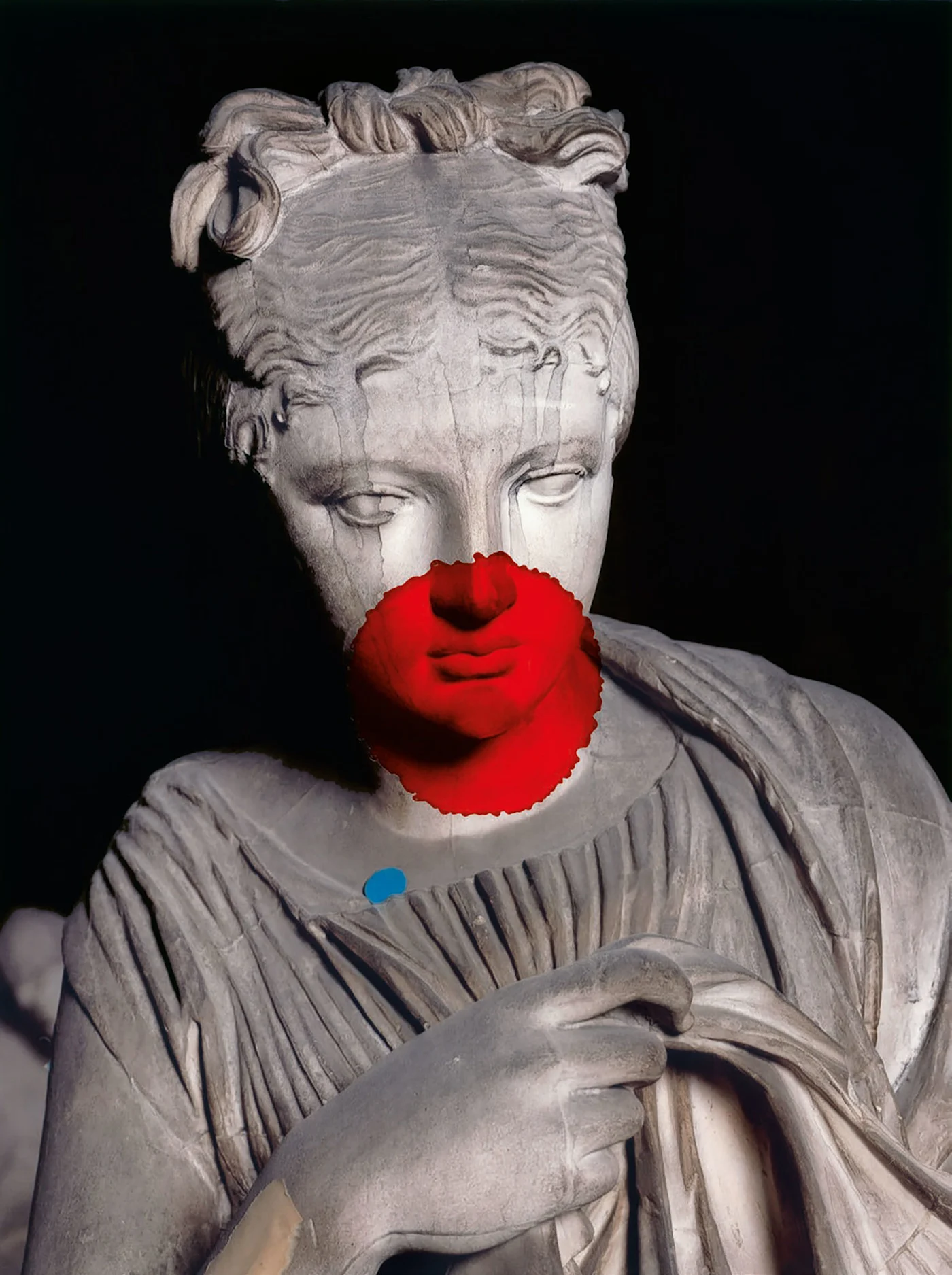
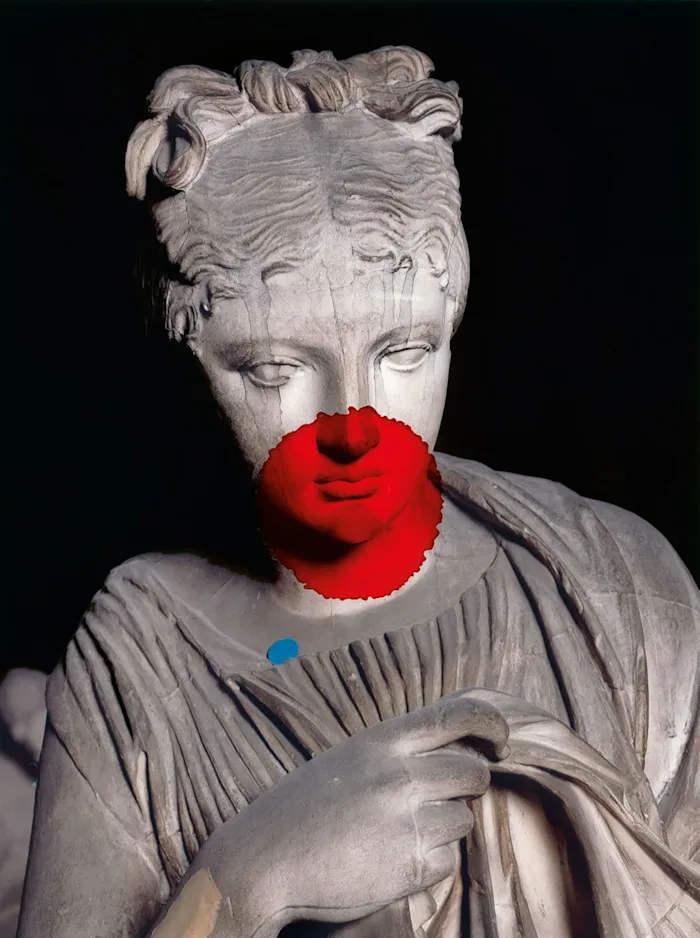
If I begin with the undifferentiated manifold, I can grasp that from the human voice, an infinite number of possible combinations of sounds can be produced — this infinite and selfsame cacophony, I discover, is my starting undifferentiated manifold. And yet in knowing this, I know nothing. All I have in hand is a ruinous concatenation of sounds. Every possible sound that I could use to create philosophical treatises, poems, and love letters, are all there, and yet, they are not really there. It is as like what Plato says of how all things held before the universe was organized, in Timaeus 53b: “ἴχνη μὲν ἔχοντα αὑτῶν ἄττα, παντάπασί γε μὴν διακείμενα ὥσπερ εἰκὸς ἔχειν ἅπαν ὅταν ἀπῇ τινος θεός [although these things held traces of themselves, everything was disposed as all would be in the absence of God].”
Within this undifferentiated, self-identical sound, within this chaos, I must introduce distinction, a difference. Once difference is introduced into the undifferentiated manifold, I get a distinction between the unlimited and the limit. In this case, the unlimited is the vowels. The vowels are continuous; they are a continuum between higher and lower vowels, and this dyad, between higher and lower, is unlimited. Within this unlimited dyad, differential unity introduces distinction and singularization, such that there are singular, different vowels. But there can be no identity within the unlimited dyad.
On the other side, I have sounds that are distinct and limited; and those are consonants. This allows me to ask how many sounds there are, and of what quality they are, that is, how they differ from one another. From a single principle — differential unity — I get, in turn, the unlimited, the limit, number, quantity, and quality. But just like I cannot produce language entirely out of vowels as a continuous vocalization, I cannot use only consonants either. The question, then, cannot be whether the unlimited or the limit is the better one, since they are both lesser than their mixture. This mixture, we could term the porous limit. The cause of that mixture, again, is differential unity. It is not a matter of emergence and selection, but rather, it is the productive activity of differential unity. And in the case of sounds, the porous limit would consist in syllables; and now, one can begin speaking.
Having given this example, one will be able to begin from the beginning; but first, one must begin by asking how to properly begin within wokeness. That is, suppose I assumed wokeness to be something along the lines of an awareness of injustice; what then? Wouldn’t I have to assume that the ground of wokeness is injustice? But how, then, could one be aware of injustice as something bad, if all that one was aware of was injustice? It has to be that one is first aware of justice. But perhaps I could hold that all power is unjust, and what is called justice is merely the advantage of whoever is in power. And yet if it were so, wokeness could not exert power to correct injustice without itself being unjust; therefore power, for wokeness, cannot be unjust in itself.
So, there must be justice — but it might well be that justice is weaker than injustice, and that everywhere, injustice prevails, while justice is relative, nothing but whatever benefits whoever is in power. But if justice is merely the advantage of those in power, then injustice cannot be stronger than such justice, since whoever is in power is the strongest, and thus defines justice. But if wokeness, such as in cancel culture, avoids the legal system as it finds its proceedings to be unjust, it cannot appeal to that justice, the justice of the powers that be. And so, if we cannot ask what is justice here, it is because the question of justice only leads to aporias and antinomies when considered within a system that is unjust.
Since wokeness appeals to justice outside of the judicial system and outside of the law, this lawless justice cannot be determinate as a particular or positive justice: it must be justice as such. But how could I look into justice as such? First, I could not consider it through an unjust political or legal system; and second, I would have to consider it both at the personal and the political level. Doing this, I would explore what it is that makes a just person and a just polity, for which I would have to build, in words, such a place, so that I would most certainly arrive at the same conclusions as Plato in the Republic and the Timaeus: full communism, the abolition of gender roles, of the family, the state, and the law.
But one must seek an undifferentiated manifold to begin with; and justice is no such thing. If, on the other hand, we suppose that the undifferentiated manifold we seek is simply injustice, then we are still forced, as we have seen, to posit a prior justice, anterior to that undifferentiated manifold. I cannot begin with injustice, as it always presupposes justice; but justice is not an undifferentiated manifold in any way. It is impossible to grasp wokeness as the awareness of injustice.
As I try to begin with an undifferentiated manifold, it seems that I cannot find any; as if, when it comes to wokeness, I am already within a differential unity, as if wokeness had no beginning. Wokeness does not provide me with an undifferentiated manifold; wherever wokeness is, there is difference and unity. Whenever I am in wokeness, I do not reside within the tautology of identity; rather, I am in difference — either that of an encounter, a shared ethical field, or one’s self-differing. Wokeness does not present me with an undifferentiated manifold, such as the self-referential nothingness of identity could.
It is as if, through some bastard reasoning, one had to take a step back from the beginning in order to begin. And here it appears that wokeness has already begun, it was always on the way; wokeness already recollects the undifferentiated manifold into differential unity, so that it provides me with the first moment of the divine method. As such, I am not arbitrarily applying a foreign method to wokeness; rather, wokeness is the first moment of the divine method, so that it is possible for me to begin, not with an undifferentiated manifold, but rather with the presentation of wokeness.
The presentation of wokeness is that of universal critique realized as a shared ethical field.
First distinction: universalism and universality
Wokeness, as universal critique, it seems, would simply be Enlightenment, Enlightenment made really and actually universal.
Enlightenment, it is often assumed, is the movement of critique, and more precisely, not as a particular but rather as a universal critique; such that there would be a first distinction here to be made, a distinction between critique as universal or particular. This distinction is that of Kant’s What is Enlightenment, where particular critique (disobedience to authority) is rejected in favor of universal or public critique, which is discursive and academic. But if wokeness is a shared ethical field, it entails that this critique is at once universal and particular. As such this first distinction between universal and particular critique, only leads, it turns out, to aporia.
If this distinction between particularism and universalism does not allow us to think wokeness, then another distinction must prevail here, for the very distinction between particular and universal turns out to be unwoke. The core of the matter cannot lie in the opposition between particularism and universalism. The distinction, rather, might well be one between universalism and universality.
By universalism, one should understand the installation of the conditioned in an unconditioned position. It was universalism when Thales held up a cup of water, that is, a conditioned thing, belonging to the series of conditions, and cried everything is water; it was, in this case, the universalism of water. That is universalism: it takes a thing and installs it in an unconditioned position, the position of that which is not a thing. The identities of humanism, racism, or nationalism, all belong to the operation of universalism. If I take a particular identity and install it in an unconditioned position, what I get is universalism.
But what of universality? What if, instead of installing a particular identity in an unconditioned position, what if I installed nothing? Instead of installing a new identity as a further universalism, I would instead be left with no installation whatsoever. Difference, then, not as this or that difference, neither as the difference between two things, nor as the not- in “A and not-A,” but rather, difference as anterior to identity and multiplicity (Parmenides 139d-e), difference beyond Being, would be universality. Difference is not installed as universal; rather, when nothing is installed, it is difference, difference as such, unconditioned difference, that is universality.
But what is this universality of difference about which differential henology speaks?
To endure is to become one and different; only multiplicity secures identity. What loses its unity and difference gets scattered into the undifferentiated manifold. As one endures through unity and difference, it seems that all things turn to absolute difference. All things yearn for this difference, and within all things, this difference is what yearns; as such, it is the absolute outside of all things, and their innermost inside too — it is the infinitely eccentric center of all things, which embraces all and is embraced by all: it is love that loves to love love. No archē lords over it; it is absolutely anarchic, and all that it wills also is without delay, so that all that is, is its will, and no order can issue from it or be derived from it or imposed over it. It is free from necessity and contingency: it is absolute freedom, pure production without identity.
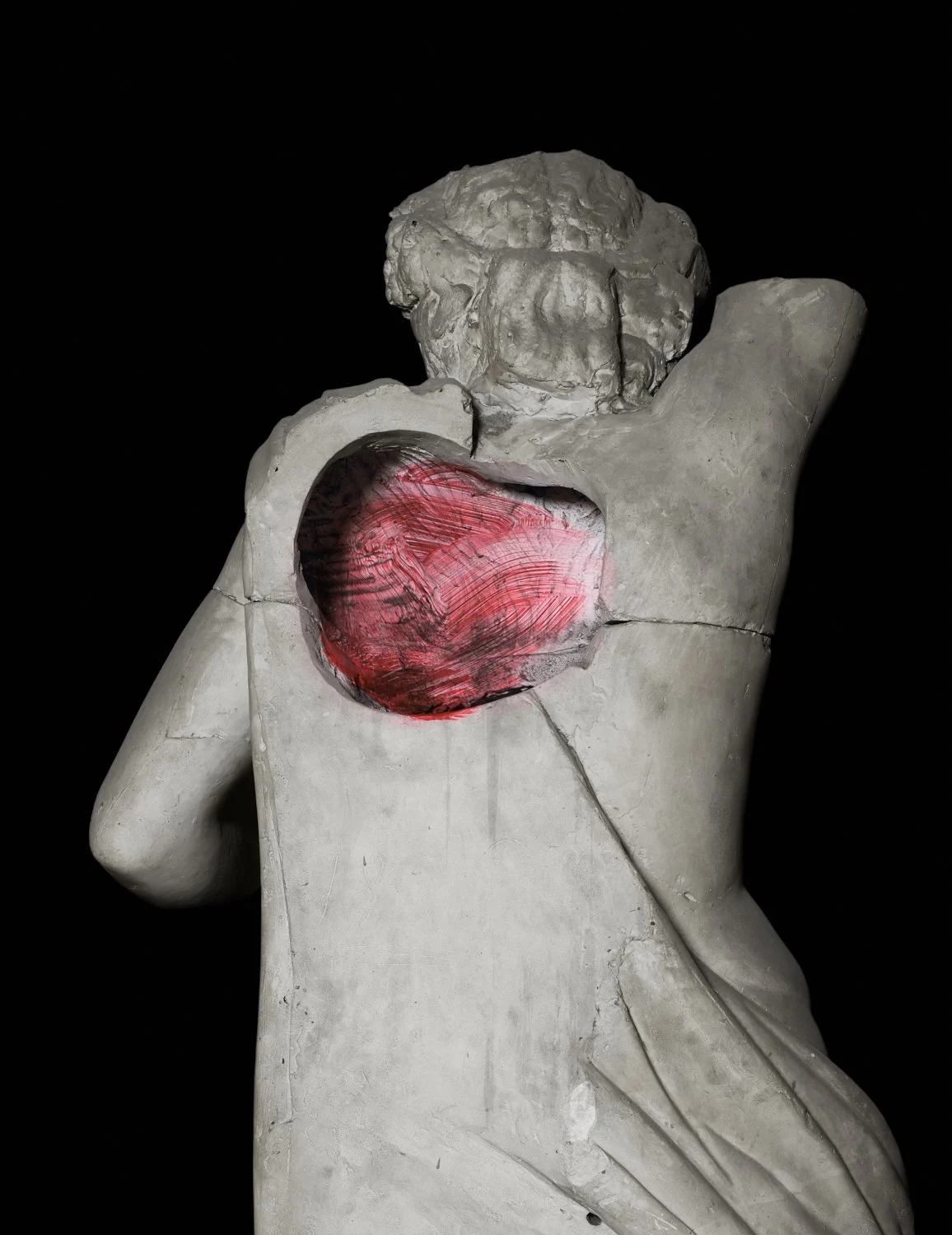
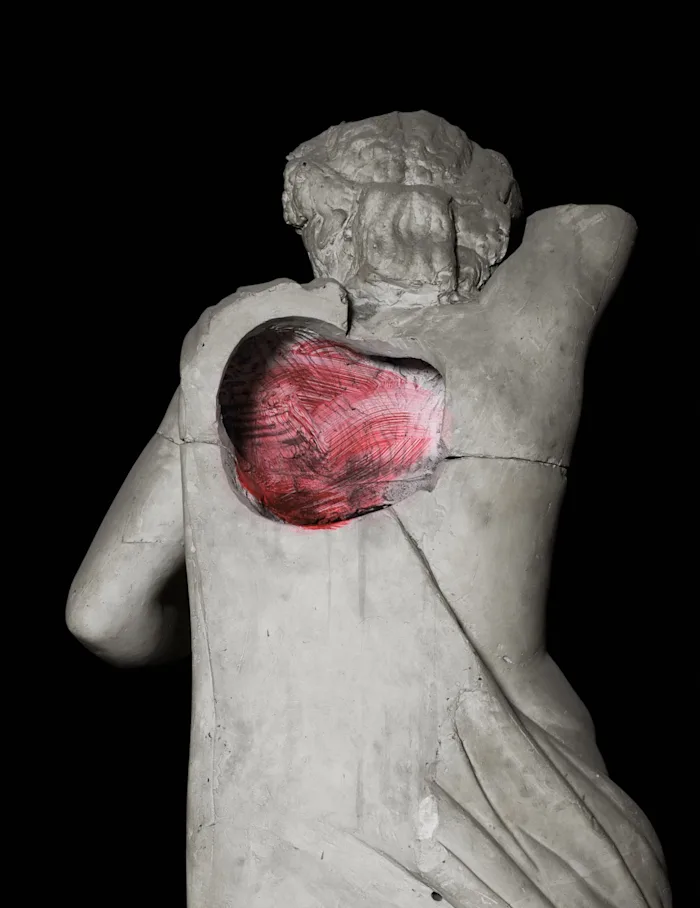
Universality must be understood at once as the absolute transcendence of differential unity, and as its immanence within each singularity. Whereas a conditioned thing can always be grasped as a that, universality is pure thisness, a this emptied of all possible determinations. It is pure thisness: as universality is always here, there is no there for universality, as it is everywhere and finds nothing outside of itself. It is difference that becomes different and not otherwise (Parmenides 141b).
What becomes clear, is that universalism must also be grasped as the installation of a that in the position of what only belongs to universality — it is injustice. The universalism of a given identity is always the usurpation of the universality of difference.
The problem with universalism is that the arbitrariness of its positing always entails the possibility of its arbitrary negation. For example, the universalism of the human provides the condition of possibility for total dehumanization. It is precisely the doctrine of humanism that allowed for the genocide of Native Americans.
There will be no real universality in Enlightenment until this is no longer reduced to a that. No identity can ever become real universality, for all identities belong to a that.
When someone exclaims “this is it,” the this refers to nothing but difference and unity. It does not designate the subject, nor an object, it is the difference always in the middle, the absolutely eccentric center of all things. It is not a matter of uttering this as if I were designating something outside of myself; rather, I must draw this back inside, removing from my understanding all that is not this as I draw it inwards, removing myself also, until there is only the concept of this, and then: remove the thought of this, remove the immediacy of this, remove the indeterminacy of this — and it is here.
This is always a difference. There cannot be a single common objective world in which all humans live, which could assume the form of a universal that. Such a common and objective world would be a world composed exclusively of the thatness experienced by various subjects. Yet I am not living in a world that is purely subjective either, in which we would find nothing but various subjects experiencing other subjects, and where objectivity would merely be the aggregation of such experiences. That is also false. I am in a world where there is a this and a that. And this is not the same everywhere: it is not self-identical. In fact, this is different everywhere. And yet, it is one.
How so? How can something be one, and yet everywhere different? It is like a summer rain. The rain falls at once, as one single rain, and yet, everywhere, in each singular droplet, the rain falls differently. It is a single rain, but the droplet here that rolls down the car window, reflecting tail lights, is infinitely different from the other one that hangs on to a leaf, a mile away.
How can this be one and everywhere different at once? It is like nature: when I lean and loaf in this field and look around, everything around me is nature, but everywhere I look, each and every thing is different, each thing differing from the next and from itself at once. A dew drop rolls down the green and rolling, it differentiates itself continuously. It is different from me, different from all that is around it, and it becomes different from itself as it rolls down the edge of a blade of summer grass. All is different, and yet, I am standing in one nature, neither in a multiplicity of disparate things that are disconnected, nor in a multiplicity where all things would be connected despite themselves by Law and compulsion.
This is one and different. As such, when I say this, I speak of the universality of difference.
Enlightenment consists in awakening to this — which is freedom. It is our awakening from our self-imposed immaturity, our reduction to thatness.
As such, Enlightenment cannot be the Enlightenment of a that, and there can be no particularism in Enlightenment. Different communities cannot oppose their different culture, as a particularism, to the logic of Enlightenment, because in doing so, they would approach Enlightenment as a that, as an identity, and Enlightenment would itself appear as a that, an identity. Enlightenment would become the Enlightenment of someone, and thus it would become a conditioned Enlightenment. But Enlightenment must be unconditioned. When Enlightenment is reduced to a particular Enlightenment (of Judeo-Christian values, of humanism, the white race, liberal democracy, the West, or France), this degrades and perverts it: such an Enlightenment debases universality into mere universalism, which is nothing other than a generally realized particularism.
The reaction against wokeness will try to position its Enlightenment against wokeness, but in doing so, that reaction makes itself particular. Wokeness is not opposed to Enlightenment. But if wokeness were made to be opposed to the Enlightenment of the anti-woke reaction, then that Enlightenment would not be universal, since it would exclude wokeness, and thus it would be particular, that is, unenlightened.
As such, it may be necessary to return to Kant’s answer to the question: what is Enlightenment? The answer Kant gave to that question — humanity’s awakening from its self-imposed nonage — is less interesting than the problem it presupposes.
If Enlightenment is humanity’s awakening from its self-imposed immaturity, this is because unenlightened societies are societies where one is unable to use their understanding without another’s guidance, that is, societies where one must always defer to someone else. As such, the maxim of pre-Enlightenment exploitation consists in saying: do not argue, obey. That is, there is a pre-Enlightenment identity of individual and universal exploitation, where one’s situation regarding the logos is one of obedience (do not argue) just as it is regarding power (obey). This identity connecting particular exploitation to a universal system of exploitation depends upon a metaphysics of transcendence, a great chain of Being ensuring that each being has access to its essence only through its inscription within this hierarchy.
With early modernity, however, and most acutely with the philosophy of Spinoza, Substance becomes immanent, and as such, each being receives an equal and individual access to an identical Substance. But what is proper to dogmatic philosophy such as Spinoza’s is the grasping of Substance as identity. It is only with Kant that one enters the realm of true difference.
And so, it is as if Enlightenment seems to introduce a non-identity between particular exploitation and the universal. If Substance is granted to all equally, as an immanent plane, then this metaphysical structure introduces a fracture between the logic of particular exploitation and the universal; if feudalism inserts particular exploitation within a universal framework, Enlightenment societies seem to separate the process of individual exploitation from the universal.
It’s for this reason that Kant notes that the statement of the strangest of all rulers should be: argue however you like, but obey. How is it that a ruler may formulate this? It seems to be the claim of liberalism. Here, it is as if there came about a non-identity between particular exploitation and universal critique. This non-identity between particular exploitation and universal critique would be the fracture at the core of Enlightenment, a fracture that Kant would have fully acknowledged already.
Yet in fact, this non-identity is inexistent. Between private exploitation and public critique, a hidden identity prevails: if one can argue however they want, it is that the content of critique is identical to the content of exploitation: capital and critique are identical. The historical movement of Enlightenment critique as the critique of transcendence and feudal institutions is identical to the historical process of capital as the material liquidation of those institutions. The strangest of all rulers announced by Kant turns out to be capital itself.


And so this situation is that of an incomplete Enlightenment contradicted by its failure to proceed beyond the particular, beyond false universality — beyond universalism as the installation of the particular in the position of universality. Enlightenment must remain within an aporia so long as it remains someone’s Enlightenment. In this position, it is the particular universalism of capital — of colonialism and the straight white man — that reacts against the real and actual universality of wokeness.
Here, the process of Enlightenment appears as dilapidated; from the perspective of particular Enlightenment, an outside refuses its claim to universalism; whereas, from the other side, the particularism of Enlightenment is revealed as a contradiction of the very logic of Enlightenment. A particular Enlightenment views the other as its external contradiction through particularism, whereas the outside views the Enlightenment as just another particularism, and a particularism that contradicts itself at that.
Second distinction: subject and non-subject
It is here that wokeness arrives.
The non-subject of wokeness is the outside that capital produces in order to build its inside; reproduction through cisheteropatriarchy, appropriation-expropriation through colonialism and racism, and production through the capitalist class, they all produce, not the authentic revolutionary subject, but rather an inauthentic non-subject, the proletariat as that class which is not a class, as Marx writes. The political situation of wokeness is nothing but the passing of this outside into the inside of capital as an imperialist project: the passing of every outside and every periphery to the innermost of the imperial core.
The left’s reactionary critique of wokeness, which sees in it nothing but capitalist ideology, could not be further from the truth. Wokeness, as the expression of an irreducible difference, expresses the impassable clash between this difference and the identity of capital; for capital is nothing but the identity of value, of value as the value-increasing process of value for itself, absolute tautology, a black hole of identity.
If the liberal-corporate program of capture operates as an asymptotic reduction of difference to identity realized as identity politics and the corporate appropriation of wokeness, it is, however, impossible for any liberal recuperation-appropriation program to reduce wokeness to identity. The so-called “culture war” is merely the expression of this inability of capital to fully capture wokeness, an inability manifesting as reaction: identitarian ontology. This ontology is given by capital as analogous to capital itself, that is, this ontology is that of pluralist identity — of sophistry.
For the sophist, all that is, is identical to itself, and to nothing else, so that all statements are self-referential and therefore both unconditionally true and incommunicable, so that their truth can only be asserted through the power of language, a peal of words. Our ontological configuration is not that of realized metaphysics, but rather of realized sophistry as identitarian pluralism.
This is because capital is identity as such, the equation of the unequal, as expressed by the formula: twenty yards of linen = a coat. It is however self-evident that this formula is false, and its truth only appears as a moment of falsehood, that is, the formula of the identity of the unequal can only find its truth in capital as a circulation process.
As circulation process, the identity of capital must unfold historically as the identity of reason within Enlightenment, a process which posits the identity between thought and being in order to realize it as infinite rationalization. Kant’s critical project makes explicit this annihilative foreclosure of difference by the historical movement of capital through the counter-movement of criticality. It is not that this foreclosure of difference should find its expression in the thing in itself, but rather that Kant, in a desperate gesture, preserves difference from the reduction of all things to universal identity, at the heavy cost of foreclosing reason from this difference.
Wokeness does not express itself as the subjective particularism of identity, but rather, as the sensitive universality of difference. The aporetic universalism of bourgeois Enlightenment finds its solution and overcoming in wokeness, because wokeness concretely brings to the inside of capital the difference that was abjected by capital to its outside. And so, wokeness does not express itself as a contradiction — capital runs on contradiction — but as an irreducible difference. It is not the authentic identity of the revolutionary subject, it is not the industrial working class confronting the objectivity of capital, but rather, it is an inauthentic, differential non-subject confronting capital, which is the self-posited subject of history.
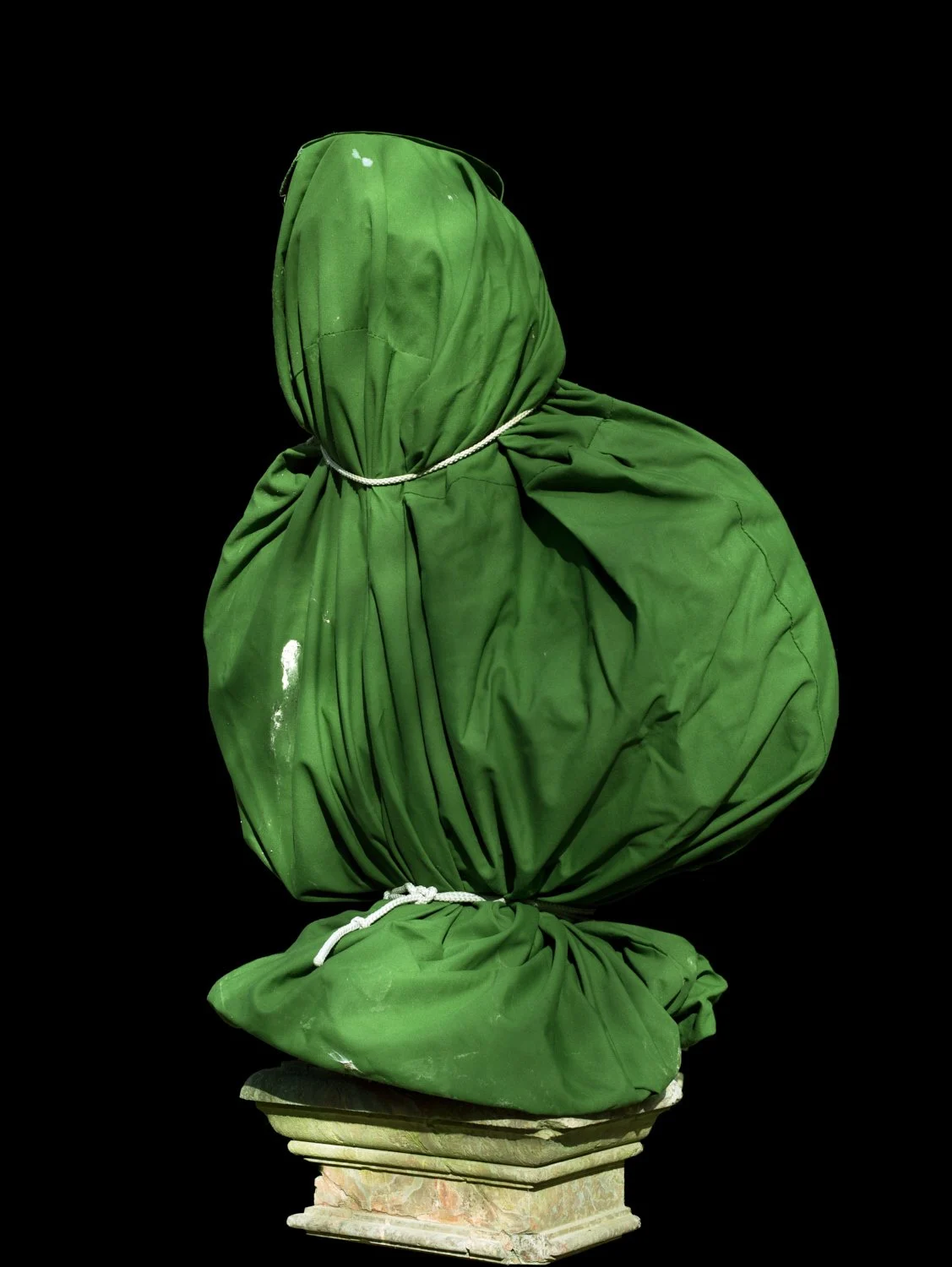
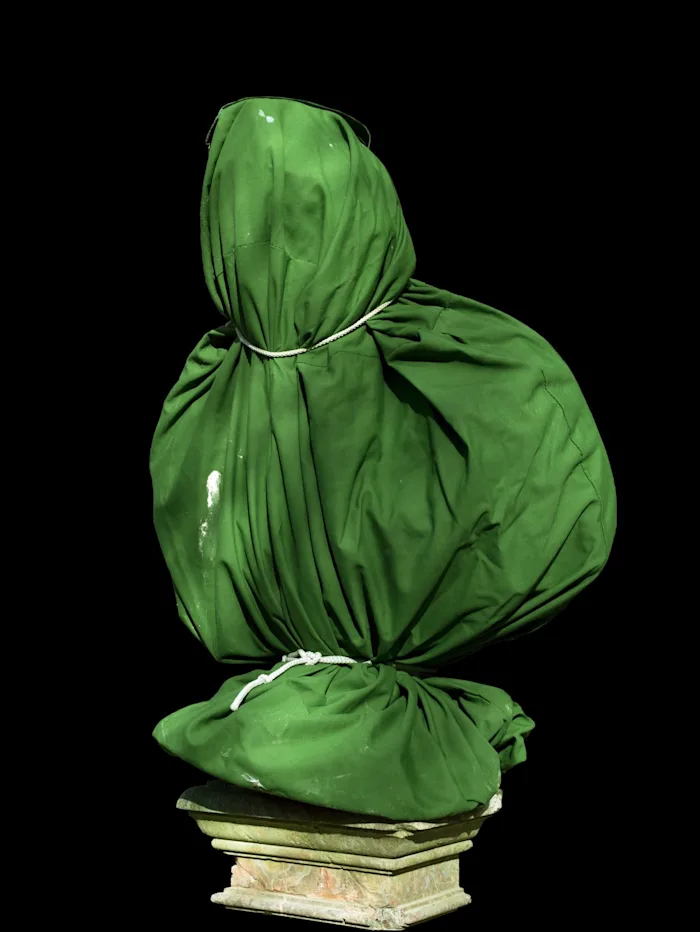
But the non-subject of wokeness, precisely because it is a non-subject, and not the anti-subject, confronts the circulation process of capital as an imponderable excess, and at the same time as an absolute minimum. It is an irreducible remainder that thoroughly overtakes the internal logic of capital, and yet, it is almost nothing. For the identity of capital is nothing, and this mode of exploitation consists in nothing but the exploitation of a marginal value of irreducible difference.
This difference, by entering the circulation process of capital, is reduced to opposition, and is subjectivized — it is almost entirely captured. From a difference, it is degraded to an opposition, and tends asymptotically to the nothing of identity. And identity, that nothing, is nothing but compulsion and unfreedom — identical unity.
Third distinction: identical and differential unity
There are two unities: identical unity, and differential unity. Identical unity is nothing but what is; it is sterile and closed. Each identical unity relates as a monad to itself and nothing else. And these monads, taken together as a heap of individualities, form an aporetic multiplicity. In aporetic multiplicity, there is no poros, no passage between each monad, whose borders are closed and hermetic.
This multiplicity is that of separation; it issues from the haphazard aggregation and accumulation of multiple individual units, where unity finds itself concentrated in each monad only. Here multiplicity is purely multiple and unity purely individual. This is the pluralistic presentation of ontological liberalism and sophistry. The untenability of this situation entails the constitution of one unit as a transcendent identity overseeing this disparate and lifeless multiplicity: the race, the nation, the group, the family, the sexuality, the gender, etc. In this aporetic multiplicity, an identity is installed as the actual form of universalism.
The identical unity from which it issues is merely that of undifferentiation, such as found in a jumble of poor ideas and incomplete thoughts or in an unclear perception. It is the unity of fascist masses, of identity politics, of a black hole. It is the unity of dissolving oneself into an oceanic selfsame nothingness. And it requires mediation — the form of value for itself.
Again, identical unity produces closed-off, self-referential monads, where each monad is itself aporetic: its borders are closed, it relies on a separation between inside and outside. An aggregation of such monads is an undifferentiated or aporetic multiplicity. This aporetic multiplicity can produce no living unity on its own; it requires a transcendent identity, as a larger identical unity, to hold this aporetic multiplicity together: in the logic of identical unity, the atomization of the individual is directly proportional to the intensification of mass identity. For the sophist, the power of language mediates between self-referential identities, just as the brute arbitrariness of power, in the last instance, maintains the identity that sustains aporetic multiplicity. Between each monad, there is no possible communication, and therefore, between them, the mediation has made itself necessary — as capital, which is identity as such.
Identical unity would be a homogeneous selfsame cloud of hydrogen.
Differential unity, on the other hand, is a productive unity, a real living unity. As such, it produces in itself a porous multiplicity, where each unit is one and really one, always retaining its unity without ever fading into the whole, and yet, while having no impassable boundaries, no strict separation. It is not that all things are heaped into one (absolute ontology), nor that they are all separate (sophistry), but rather, that each is one and different and communicates with the others through difference. It is the living unity of a philosophical system, a singular sensation, or a coherent diversity of sensations such as found in art — it is the unity, in a word, of a chorus. The chorus is one because the different voices within it maintain their unity and difference while all coming together as one. Each voice would be so much less without the chorus, and the chorus is a chorus only because it is not a single voice, because it manages to preserve each voice in its singularity while each voice strives to be itself as a member of the chorus. Differential unity is in the real and actual freedom of a flight of seagulls, where each seagull is singularly free and differently employs its freedom, while their multiplicity nonetheless comes together as a single flight.
Differential unity would be a self-differentiated cloud of hydrogen: a star, with its solar system.
Absolute difference does not approach the nothingness of identical unity, which is the abyss. But we almost touch the abyss. We can choose the abyss.
Our freedom may well consist in nothing but the ability to choose between good and evil — that is, between differential unity and identical unity. To choose the good, is to turn away from identical unity — from nothingness — towards differential unity, which is life, pure life. A selfsame cloud of hydrogen is identical unity; in a solar system a differential unity prevails. Difference in itself ceaselessly differentiates clouds of hydrogen into stars and their systems; it is only we, who can choose not to do so, we who can choose identity. And our freedom entails our proximity to that abyss, but also, the freedom to turn back to a different life, to what hasn’t been created, hasn’t been thought, and hasn’t been reckoned yet, and this is real freedom, this is infinite freedom.
But there is an aporia in freedom, which is the greater aporia of Enlightenment.
The greater aporia of Enlightenment
Is there not a recurring discordance in Kant’s Critique of Practical Reason? It seems that Kant relentlessly chances upon the same problem. It’s a problem that troubles Kant already in the second critique, but the last pages of the Opus Postumum will show him still grappling with it too. In the Opus Postumum, Kant speaks of a conceptus fanaticus in Spinoza; and in the second critique, Kant returns over and over again to the danger of a Schwärmerei, a fanaticism. It is as if there were something in reason that troubled Kant, the looming threat of something fanatical within reason, which would follow the demands of reason itself, and yet, that would find itself incapable of receiving any kind of limit. As if there was something senseless within reason, something that would threaten to pass every boundary, and unfold in total illimitation, as a complete insanity, a rational delirium, a deliratio rationis.
As concerns speculative reason, this is of little importance for Kant; but within practical reason, it is something else entirely. And that this deliratio rationis should be identified by Kant in Spinoza’s Substance seems troubling. How could Substance yield something fanatical within practical reason? This is because a universal position is a demand of practical reason. That is, each action is placed in the position of a universal law. At first sight, this has the advantage that any imaginable misdeed cancels itself out: if I steal someone’s lunch, I set this as a universal law, so that everyone has to steal someone else’s lunch; but if it were so, then no one would have a lunch, since all lunches would be stolen, and there would therefore be no lunch to steal, and I could not steal someone’s lunch. And so, practical reason follows the same principle of noncontradiction as speculative reason: it is impossible to place a misdeed of any kind in the position of a universal law, without this misdeed canceling itself out and becoming impossible. Any crime, put in the position of a universal law, will cancel itself out in this way. Crime cannot be made into law, and the law holds true. Crime is incoherent.
And yet, there is a fanatical act that thoroughly respects the demands of pure practical reason. It is to install annihilation in the position of universal law: mass murder followed by suicide, as in school shootings, terrorism, fascist genocide ending in the fascists’ own destruction, nuclear warfare, and the wholesale destruction of the planet. These are fanatical acts that can be committed lawfully and reasonably, without breaking the moral law and while obeying the demands of practical reason; it is done out of a higher duty, without self-interest nor any consideration for consequences. This fanaticism only demands that one should install annihilation as the content of the moral law. But those are precisely the crimes of modernity.
This is the integral aporia of Enlightenment, a logic known to Sade already, who distinguished between first nature and second nature. For Sade, first nature, natura naturans, which in Aline et Valcour he also terms intelligible nature, calls for the wholesale annihilation of this second, unintelligible nature, natura naturata. Sade posits a total rationality in first nature, and irrationality in second nature; if this rationality is, as Sade supposes, one of annihilation, then Sade’s call to dare to do violence to this unintelligible nature, as a logic of extinction, is perfectly rational. The identity of being and thought, Sade shows, is the identity of rationalization and extinction as a single process. Sade’s fanaticism consists in placing annihilation as the logic of Substance, but more originally, it arises from grasping Substance as absolute identity.


Once Substance is enthroned as rationality and absolute identity, the result is what Kant terms the conceptus fanaticus. The fanatical concept is identity as such, posited outside of oneself. Since it calls for the total liquidation of everything into itself, the fanatical concept, as absolute identity, unfolds as a logic of total rationalization: universal annihilation. The fanatical concept lawfully and morally reduces everything to its logic of extinction as both the identity of world and reason, and the identity of the speculative and practical idea. This extinction is that of everything falling outside of pure identity. In the logic of twenty yards of linen equals a coat, the fanatical concept is universal equalization, understood as the absolutely identical convertibility of all things. Everything is to be expressed in the fanatical concept, as the fanatical concept. It proceeds as a self-verifying yes, it is instrumental reason and capital as one, and it annihilates all that falls outside of its absolute identity. The fanatical concept produces at once capital, the state, the school shooter, instrumental reason, ecological collapse, and terrorism. It annihilates all differences. It is the logic of clearcutting and the camps. It rationalizes nature in order to verify itself as the identity of reason in nature, thereby entailing extermination for everything that differs from this identity.
To the extent that fascism is the concrete inversion of the moral law rooted in freedom, to the extent that it is the self-overturning of freedom, it is identical to the problem posed by suicide to Kant. Within critical philosophy, it is not irrational to proceed from mass murder to suicide, that is, to universalize annihilation, to bring about death upon others and oneself equally. Fascism proceeds from the identity of mass murder and suicide as the active, non-reflexive form of suicide: non pas se suicider en société, mais suicider la société. The Enlightenment has nothing against this: fascism, within practical reason, can rationally install annihilation as an a priori principle, and this is the expression of the identity of mass murder and suicide discovered by Kant. It is no coincidence that fascist regimes are inherently suicidal, as when Nazi Germany prioritized the maximization of the death toll over its own survival.
The anesthesia of pure reason
There is a gap in the critical project. In fact, not only a gap, but an abyss in the critical project. This abyss is that of the voided space of sensation. It is precisely because there was this voided space within the critical project that irrationalisms continuously recur throughout modernity. This irrationalism was not an assault against reason from an outside, in the form of a modern barbarism. Its origin lay instead in that gap in the critical project, an abyss within reason, but a reasonable abyss. These irrationalisms are not an outside to reason; they are reason gone mad. All of the horrors of the last century issued from a gap within the critical project, and this gap is that of its lack of sensitive reason.
The complete process of Enlightenment rationalization, as demythologization, turned out to be the removal of sensitive reason from the system of reason. As such, this supposed rationalization could produce nothing other than a modern irrationalism. That is to say, irrationalism was a moment of reason: it was the anesthesia of pure reason.
Wokeness, as the return of sensitive reason, turns out, as announced in the Oldest Systematic Program of German Idealism, to be a mythology of reason, that is, the resensitization of reason. The irrationalism of modernity was this gap of Enlightenment as the lack of a sensitive reason, a gap made manifest as the annihilationist program of instrumental reason; but once reason comes to its senses, once it regains sensation, there is nothing within it that tends to this annihilation.
Reason as purely instrumental, reason that has made itself into a means, terminates in a logic of extinction. But in making itself into a means, what does reason enslave itself to? Identity. For, as we know, the supreme principle of reason is non-contradiction. Yet transcendental philosophy, in its critique of pure reason, arrived at a more originary concept, which is what Kant terms the supreme principle of understanding. The supreme principle of speculative reason is identity as analytic unity. If the highest summit of speculative reason, the transcendental dialectic, serves to establish, as problematic, a space of pure difference, it remains that this difference is not grasped within the speculative, as the infinite judgment makes explicit. By contrast, the supreme principle of understanding is difference as synthetic unity, and thus the supreme principle of reason must be derived and secondary to the supreme principle of understanding, which is given neither in intuition, nor to the subject, but is instead manifest in sensation and transcendental unity. As such, difference is always anterior, and for us there is, strictly speaking, no immediacy. Always delay prevails.
Consequently, there is no absolute fall of reason, for irrationalism still retains the operation of instrumental reason. That is, irrationalism appears as a moment of reason, a deliratio rationis, where reason becomes purely instrumental, instrumentalized by identity as the Form of Value for itself, and thus separated from understanding. It is correct to speak of such a deliratio rationis as the anesthesia of pure reason. In this anesthesia, instrumental reason only serves to rationalize what was already posited as the proper field for the exercise of rationality. For instrumental reason, the concept is capital as identity: the form of value for itself. And so, where reason is purely instrumental, its process appears as the reproduction of identity, a process only possible to the extent that it operates as a pure anesthesia of reason. Instrumental reason then proceeds internally as a demythologization, which is the removal of sensitive content from reason. For mythology is nothing other than sensitive reason. But then, the anesthesia of pure reason produces instrumental reason as the reason that has lost the life of thought. If the anesthesia of pure reason is incapable of limiting itself, this is precisely because such a reason feels nothing.
The true problem is not that pure reason is incapable of limiting itself, but rather that anesthetized reason no longer senses any limit. Not only is instrumental reason in the process of rationalizing everything — converting everything into the conceptual identity of capital — thus extending the logic of extinction across the earth, but within this totality, irrationalism appears, under the hideous guise of racism, fascism, and genocide, as not only the delirium of reason but an armed delirium. This deliratio rationis goes on raving with the full might of instrumental reason in hand.
Sensitive reason
There is a story that can give a likely view of instrumental reason in modernity. A friend of mine, who is moving, asks me to keep a weapon of his in my house, and he further asks me to promise that whenever he should return to ask for it, I will deliver it to him right away. I give my word that this weapon is his, and that he may have it back whenever he pleases; I even put this in writing. Two weeks later, my friend returns, but he is insane, and enraged at some people who he believes to have wronged him. He asks me to give him his weapon back. I want to respect the law of private property, so I cannot confiscate and steal the weapon from him, and I refuse to lie by pretending that I cannot give him back his weapon because I also respect the moral law. What then? I have to give him his weapon. He then proceeds to use the weapon to kill as many people as he can, before killing himself.
What happened here? Did anything unreasonable or unlawful take place? No. All of this happened within the boundaries of reason and law: I respected the law of private property by giving him his weapon, and I respected the moral law by refusing to lie. My friend, as insane as he might sound, acted in accordance with the moral law, since he turned his act into a universal law: he placed annihilation in the position of a categorical imperative, and tried to kill as many people as possible, before killing himself. Within the anesthesia of pure reason, this is both lawful and reasonable; I can even extend this logic to the entire planet, and rationally murder the whole earth and conclude with my own self-murder. I could subordinate everything to the logic of identity, as capital, and I would rationally and lawfully extinguish all life on earth.
This is how instrumental reason operates. But as all of this took place, and while I gave my friend his weapon back, was I not sensing something? While I was giving him the weapon, and once he was gone, what is it that I was sensing? It would have been something like a knot in my stomach — anxiety. And this anxiety has a specific sense: it is my sensitive reason, ratio sensualis. It tells me, through anxiety, not to give him back his weapon, and even though the law of private property tells me that I must give it back, and even though the moral law tells me that I cannot lie to conceal it from him, my sensitive reason, as anxiety, overcomes these two laws through its primacy, and makes me utter: no. This is not a question of freedom of speech. It is parrhesia. No matter what the law of private property or the moral law tells me, my sensitive reason overtakes both, and makes me say no, even if this is to my disadvantage, even if it should result in my death. I need no argument as to why I should not give my friend his weapon back, since I would lose those arguments, as he is in his right as regards the law of private property and the moral law. Even if my friend should try to hurt me attempting to get to his weapon, my own safety comes second. What comes first is the utterance of the no as parrhesia. That might be the final truth of philosophy, the resounding no, you are lying, of Plato’s Seventh Letter. In the face of absolutely rational and lawful exploitation, what always remains and can always triumph is this no that is uttered by someone who knows, from sensitive reason, that saying yes or saying nothing would be a crime against the universe. And this is known through anxiety, which is my sensitive reason urging me to resist.
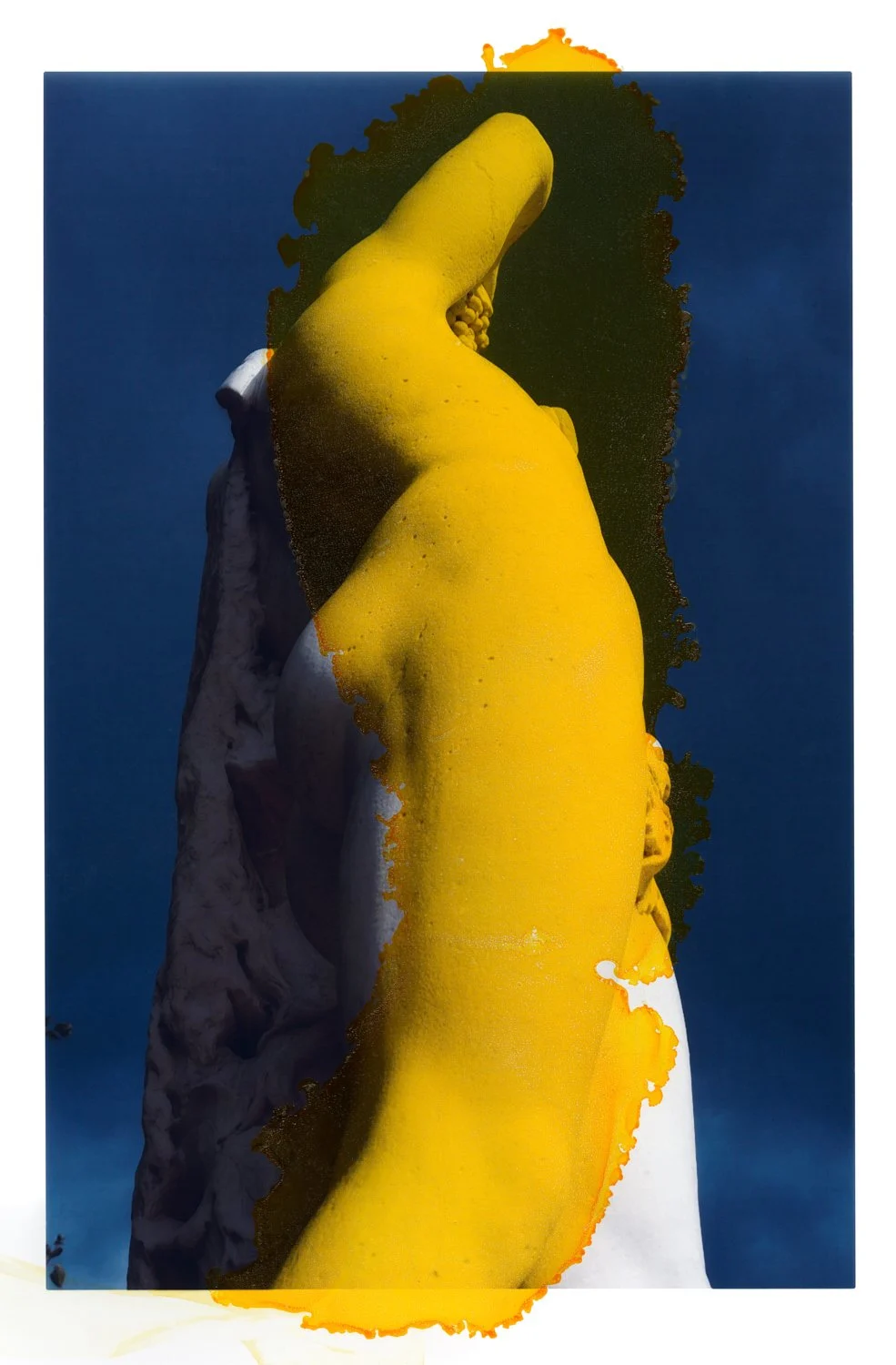

It is not true that sensitive reason has always been foreign to philosophy. In fact, there is a vanishing trace of this sensitive reason in the figure of Socrates. Due to an error of translation, it was assumed that Socrates was accompanied by his daemon, but Plato’s Greek says otherwise: Plato never spoke of a δαίμων, daemon, but rather, of a δαιμονίον, daimonion, which means, in Greek: an event, a divine sign. Plato’s Socrates never spoke of a “daemon” as a little being sitting on his shoulder; rather, he spoke of a sign, a symptom. And for Plato, that sign, as anxiety, was the origin of philosophy. Socrates’ life as a philosopher is set in motion by the sign that he must avoid politics and examine his fellow Athenians. This knowledge is that of sensitive reason. Here, sensitive reason only appears as strictly negative, under the form anxiety. It tells Socrates that something is wrong. It is not an imbalance of his; Socrates does not medicate his anxiety.
What if wokeness were nothing other than the return of sensitive reason?
Only sensitive reason can close the gap in the critical project and complete the system of transcendental idealism. Only sensitive reason can preserve the process of Enlightenment. But this is only possible to the extent that there is such a thing as intellectual sensation.
Moreover, intellectual sensation is only possible provided that there is no real void, no rupture in sensation. For this to be the case, there must be something like a field that sustains becoming, and which, through some bastard reasoning, would be tangible by non-sensation; and thus, that somehow, in the most baffling way, partakes of both sensation and Intellect. This would not only show that intellectual sensation is possible, but how it operates; in other words, a critical account of intellectual sensation would have to proceed from a transcendental deduction of this field. If this fails, there would be no recourse, within the logic of Enlightenment, against fascism and pluralistic relativism, against the fanatical concept, against extinction. And this is the gravest danger.
Kant’s attempted transcendental deductions of such a field throughout the Opus Postumum remain unconvincing given that, either proceeding from the subject or the object, both attempts proceed through a transition to transcendental unity upon which they depend through the principle of identity. In fact, both the incompleteness of the Opus Postumum and this attraction to transcendental unity appear as signs of a single problem: that such a field must be deduced by beginning with transcendental unity. But to begin with transcendental unity is to forego the safety of both subjectivity and objectivity; it is to engage in a more perilous, more uncertain voyage. And yet, this most alien of all crossings must be attempted.
Viewed from wokeness, Enlightenment turns out to bear a twofold aporia: an ethical aporia of an Enlightenment that could not enact itself through the particular; and a greater, integral aporia of Enlightenment as the anesthesia of pure reason, realized as fascism and climate collapse. This twofold aporia of Enlightenment is resolved by wokeness’s closure of the gap in the critical project, through sensitive reason. However, as sensitive reason is more than mere sensation, there is intellectual sensation; and what remains is to explain how. This how requires a field in and through which intellectual sensation operates, a field that implicates both sensation and Intellect: this is what can be termed the differential field. What is now needed is a transcendental deduction of the differential field, a transcendental deduction proceeding from transcendental unity alone. Although this transcendental deduction is completed, it has not been included here due to concerns of brevity. It will be published subsequently as a standalone Appendix to the present text.
Intellectual sensation
Taking for granted this transcendental deduction of the differential field, which allows for a critical account of sensitive reason and intellectual sensation, let us return to Plato’s own account of sensitive reason.
Sensitive reason is described by Plato in the Seventh Letter as χώρα καλλίστη, khora kalliste, “the most beautiful chora” or “field.” Plato introduces the concept of the khora kalliste precisely in order to establish its primacy over speculative reason. Thus we read, 344c-d: “ἑνὶ δὴ ἐκ τούτων δεῖ γιγνώσκειν λόγῳ, ὅταν ἴδῃ τίς του συγγράμματα γεγραμμένα [...] ὡς οὐκ ἦν τούτῳ ταῦτα σπουδαιότατα, εἴπερ ἔστ᾽ αὐτὸς σπουδαῖος, κεῖται δέ που ἐν χώρᾳ τῇ καλλίστῃ τῶν τούτου: εἰ δὲ ὄντως αὐτῷ ταῦτ᾽ ἐσπουδασμένα ἐν γράμμασινἐτέθη, ‘ἐξ ἄρα δή τοι ἔπειτα,’ θεοὶ μὲν οὔ, βροτοὶ δὲ ‘φρένας ὤλεσαν αὐτοί [in a word, one must understand, out of all this, whenever one sees a man’s written texts, that these are not his most serious works, if indeed he himself is serious, rather, those works lie in the most beautiful field of his. But if they were put into writing by him as his serious works, then it is not the gods, but mortal men, who have utterly ruined his senses].”
Read correctly, this is not a mystical statement in any way, nor the affirmation of some unwritten doctrine; the point is simply that sensitive reason is non-discursive and non-representational. As such, sensitive reason appears here as the fifth: not the three means of knowing, nor, in the fourth place, knowledge; but rather, the positing that something knowable really exists (342a-b). This positing occupies a position of porosity between sensation and Intellect; it is intellectual sensation.
But is there textual evidence of such a doctrine in Plato? It might not be a coincidence that the field of sensitive reason was described as most beautiful. For there is in Plato a direct textual mention of intellectual sensation, which concerns beauty. It is in the Phaedrus, 250c-d: “περὶ δὲ κάλλους, ὥσπερ εἴπομεν, μετ᾽ ἐκείνων τε ἔλαμπεν ὄν, δεῦρό τ᾽ ἐλθόντες κατειλήφαμεν αὐτὸ διὰ τῆς ἐναργεστάτης αἰσθήσεως τῶν ἡμετέρων στίλβον ἐναργέστατα [but as to beauty, as we said, it was shining among those sights, and since we came here, we have grasped it, through the most acute of our senses, gleaming most acutely].” And following this, Plato explains that all other intelligible sights cannot be seen by the senses, save for beauty, which has this lot, that it is ἐκφανέστατον, ekphanestaton, most manifest (250d).
At 251c, Plato describes the event of intellectual sensation as “δέχεσθαι τοῦ κάλλους τὴν ἀπορροὴν διὰ τῶν ὀμμάτων [to receive the stream of beauty through the eyes].” The text is unambiguous: in the event of beauty, the Intellect passes as ἀπορροή, aporrhoe (which can be rendered as stream or outflow) into the very tissues of the eye. The Intellect passes into the organism, as sensation — it is intellectual sensation.
The empirical — the lowly province of facts and data collected from experience — is orders of magnitude below the truth of intellectual sensation. Beauty being of the Intellect, it is differential unity, whose intellectual intuition we possess as a stream; and thus, as a stream, it cannot rest in the subject, nor in the object. It lies in the middle, in a field we know from Kant as transcendental unity, which is anterior to both the subject and the object. Within transcendental unity, beauty is not experienced as differential unity, since experience belongs to the subject; rather, it is pure sensation as differential unity.
Wokeness, as sensitive reason, is reason made sensible: the completion of the Oldest Systematic Program of German Idealism.
But sensitive reason is not merely beauty. There is another event of sensitive reason found in Plato: anxiety. In fact, we needn’t even leave the Phaedrus to find it. At 242b, Socrates — who was about to leave, having finished his first speech — suddenly speaks up: “ἡνίκ᾽ ἔμελλον, ὠγαθέ, τὸν ποταμὸν διαβαίνειν, τὸ δαιμόνιόν τε καὶ τὸ εἰωθὸς σημεῖόν μοι γίγνεσθαι ἐγένετο — ἀεὶ δέ με ἐπίσχει ὃ ἂν μέλλω πράττειν [just as I was about to cross the river, my divine and usual sign came to be — it always holds me back from something I was about to do].” It is crucial to understand, again, that Socrates never speaks of a demon, but rather of a daimonion, a divine sign. This divine sign, which tells him not to do something, is anxiety.
It is anxiety, here, that sets Socrates’ philosophizing in motion, just as this same anxiety prevented him from engaging in politics and thus brought him to philosophy (Apology, 31d).


In sum, we may distinguish three beginnings of philosophy in Plato: beauty, as in the Symposium; wonder, as in the Theaetetus; and anxiety, as in the Phaedrus and the Apology. Beauty drives desire, while anxiety holds it back. But what of wonder? Wonder is nothing other than the unity of beauty and anxiety. If sensitive reason is what produces mythology, it is no surprise that its main operation should be that of wonder. And this should provide new insight into the function of myth in Plato; if myth serves to bridge ontological levels precisely at the point where speculative reason seems to fail, it might well be that it does so as sensitive reason.
Wokeness is the return of sensitive reason, which puts an end to the demythologization of the dialectic of Enlightenment.
Wokeness and historicity
That sensitive reason should come into its own at the end of dialectical history, and precisely as an historical event, might reveal that reason is itself historical. But does this mean, then, that wokeness is historically conditioned? Not necessarily. Just as dialectical history forced upon its thinkers the reinterpretation of all previous history as dialectical, wokeness tasks us with the rewriting of all previous history as the history of wokeness. And yet, the true question that presents itself to thought is whether wokeness demands, or at least, allows for a step back from historicity, from the position within wokeness of the thought that thinks wokeness. It is my reckless wager that wokeness functions not as a particular metanarrative, but rather, as the metanarrative in itself, and that its historical truth is the moment at which history becomes anhistorical: one commits no anachronism by judging all of past history through wokeness, for wokeness, as anhistorical historicity, is the very stuff of history, now passing to the forefront and recollecting itself as the truth of all previous history. It is not an apocalypse — it is an apocatastasis. And this is also how we must understand cancel culture, as the present, purely anhistorical actuality of wokeness: cancel culture is divine violence. It does not operate within the Law, and yet, it falls upon the enemy with all the beauty and the terror of a lawless justice that seeks to ground no further law, and sheds no blood. Such is divine violence: a lawless justice that bears much in common with what Aeschylus named the awful grace of the divine.
The anhistorical historicity of wokeness places it in such a position that it finds nothing outside of itself: there is no culture, no religion, no philosophy, no way of life that confronts wokeness as its outside, as it receives and embraces each as a further difference, so that only differential henology can think wokeness. There is no outside to wokeness; one is either woke or anti-woke, and all anti-woke positions are decided already by wokeness. The anti-woke reaction solely deals in the terms given to it by wokeness; it has no autonomy and cannot create any alternative. Not only does the reaction receive its terms from wokeness; but they are already stale as they fall into its lap — wokeness has already moved on.
Wokeness posits the reaction of the anti-woke, which has no freedom or autonomy; it is a moment, or better, an inner tension within wokeness, a tension presupposed and posited by wokeness, not as its negation, nor as its contradiction or as an opposition, but as the pure nothingness of identity, what merely is as the identity of being and nothing, wherein there is no sublation into becoming — the bulk, the undifferentiated manifold. There is no sublation; the identity of being and nothing is the undifferentiated bulk that wokeness, as infinite becoming, runs through on its way to the Kingdom. The reaction is the autonomous movement of the non-living, the dead burying their dead, hollow shells articulated by the circulation process of capital — how little of the light of the Intellect still reaches down into that infamy, and how distant the echoes of the One. What is the outer form of evil? A suburban row of selfsame houses and a store aisle full of commodities meant for the landfill.
There is no outside to wokeness. Marxism has been torn asunder by wokeness; and the splitting of Marxism into the two camps of woke and anti-woke shows that Marxism has become secondary to wokeness; for wokeness has not been split by Marxism. If Marxism is to endure, it must recognize the primacy of wokeness.
Wokeness has no outside; it is a step back from the history of Being, as the originary and truly incipient thought of philosophy, formulated in Heraclitus as differential henology. And thus Heraclitus utters, DK B89: “τοῖς ἐγρηγορόσιν ἕνα καὶ κοινὸν κόσμον εἶναι τῶν δὲ κοιμωμένων ἕκαστον εἰς ἴδιον ἀποστρέφεσθαι [for those who are awake [woke], there is one common world, but each one of those who are asleep turns to their own particular world].” This is the originary utterance of a distinction between differential unity on one side, and identical unity on the other, with its associated aporetic multiplicity. The unwoke all have their own closed-off world they live in, but the woke have a common world, a shared ethical field, which is that of differential unity.
By grasping reaction as this internal resistance to wokeness, we find, at the end, the undifferentiated manifold we sought to begin with; and proceeding through the multiple distinctions of wokeness (subject/non-subject, universalism/universality, and differential unity/identical unity), we arrive finally at its highest point of differential unity — intellectual sensation. And thus, for wokeness, the divine method is complete.
Conclusion
Speculative reason can rise beyond the merely empirical and factual to reach the transcendental, where it finds, beyond itself, and outside of its territory, as problematic and transcendent, the postulates of practical reason, that are immanent within practical reason. Among those postulates, we find that of the Intellect. But sensitive reason, precisely as intellectual sensation, receives information from the Intellect, and thus holds a primacy over both practical and speculative reason. It is this primacy that solves the greater aporia of Enlightenment, and this primacy is that of wokeness.
Am I dysphoric? Do I feel that I am not beautiful? It was to be expected: there is no beauty in the subject, and there is no beauty in identity. If I seek to find beauty in myself as an identity, I will never find it, no matter how many times I am told that I am beautiful, no matter how “objectively beautiful” I think I might be. Beauty is not subjective, nor is it objective. Beauty is a self-differentiated unity, and as such, it concerns transcendental unity as a pre-reflexive field. That is why animals contemplate the sunset also, for a sunset is beautiful in itself as the most evident differential unity, that of a self-differentiated cloud of hydrogen. A self-same identical cloud of hydrogen, as like an undifferentiated manifold, collapses into the differential unity of a star, this process being the self-differentiation of that cloud of hydrogen. At noon this beauty is too strong for our poor senses; only in its setting can we grasp that beauty, as it gives way slowly to the starry night.
The night-sky above possesses such terrible majesty that it annihilates the subject. One does not come to the starry night as a subject before an object. The subject, reflecting upon itself before this infinity, can only conclude, full of wonder: “I am nothing.” And in this wonderful annihilation of the subject, what remains is nothing but sensation, and the infinite multiplicity of the starry night is recollected into one, as one non-subjective sensation.
The sensitive reason within me, is equal to the starry night above me: for this infinity of stars, in the awful beauty of the connection it throws me into, reduces me to nothing; but sensitive reason tells me that my every gesture involves everything, and that is my freedom and its infinity. With wokeness I dwell in a living connection which is living unity, and this inscribes the exercise of my freedom as necessary within the cosmological. The universe would be incomplete if I were not woke.
But we — what are we?
There is something within me, which is not me as a person, nor is it my memories, my origin, my situation, or any possible determination, trait, characteristic, or condition of mine; it is not me, and yet it is what I really am, it is Me Myself. Neither as a subject nor as an object nor as an identity, but rather, as difference and transcendental unity. I am an intelligible universe: I no longer seek eternity outside of myself. My world, as I create it through the expression of my infinite freedom, is the manifold of my modes — my ethics. All can be created, all can be done, all can be changed, all can be toppled, and all can be restored.
This is the radical optimism of wokeness.
Is an anthill unnatural? Is the song of the humpback whale a deviation from nature? In truth, no ecology will ever be deep enough without realizing that technology and culture are natural. There is nothing outside of nature, and there is nothing unnatural, save for the extinction of nature. The question of technology is not one of technology facing nature as its other, but really one of asking what kind of nature will our freedom produce. As such, the city that wokeness will build, will not stand as opposite to nature; nor will it be wilderness either. Everywhere a porous limit will prevail.
Our cities will be made of brutalist housing projects for life in common, seamlessly transitioning into greenery; a 15-minute city of 30-second longhouses. There will be rivers flowing through our avenues, with fish jumping out, with artworks and musical performances, and free lectures by scholars. Port Authority in New York City will be a glade, and there will be children dancing in the meadows under plane trees in Chicago by the skyscrapers; our city centers will look like the Music Concourse in Golden Gate Park; and within this lifetime, you will be able to cool your feet in a clear stream flowing through Montreal, and draw clean drinking water in the palm of your hand. There will be no doctrine or articles of faith, only the shared ethical field of a dignified life in common. There will be joy.
Wokeness will make the earth into what it was always meant to be: a paradise among the stars, the meaning of the universe.
Images: Viviane Sassen